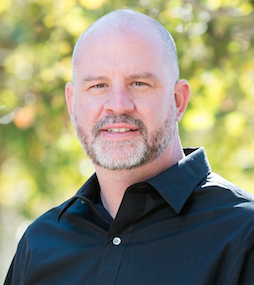Mike Faherty is the founder and CEO of ProSales Connection, a marketing firm that specializes in working with B2B companies to build their sales pipelines. From inbound marketing to content marketing to conversion strategies, Faherty says his company’s competitive advantage is its commitment to bring value to its clients, which strengthens relationships and opens more opportunities for the company.
Starting out
Q: Why did you start the company?
A: I started the business nine years ago. Before starting the business, I spent around 14 years leading inside sales teams as well as field sales teams for a couple different companies. Over my career, I had opportunities to outsource various inside sales functions to third-party sales companies. After the financial meltdown in 2008, I was downsized when the company had to cut costs dramatically. I was faced with the opportunity to think, “What would I do if I could just do anything?” I did an inventory of what my skills were and what I enjoyed doing. I kept circling around inside sales; I really had the most success and enjoyed building inside sales teams. That’s when the thought came to mind, “Why don’t I just become one of those outsourcers that larger companies are going to for this expertise?”

Q: How did you finance the company at the start?
A: I made a deal with myself that I wouldn’t start the company until I found someone to give me money – actually write me a check for my services. My first client paid me $5,000. I went to the bank, deposited the money, incorporated the company, and secured a tiny little office space. I was able to cash-flow the first month based on that investment. That obviously wasn’t enough to support my household needs, so I used a little bit of severance money from my previous employer. Then, I turned to personal savings and took some early disbursements from my 401K.
Q: What’s the biggest mistake you made at the start?
A: One of the assumptions I made was that a customer wouldn’t pay us until we had completely delivered the service. I operated under that assumption for the first few years of business until I had a conversation with a client who asked me whether I wanted a check before I started or not. That was literally a light-bulb moment when I realized that someone might pay us before actually starting the work. That became the new policy, which certainly helps from a cash flow perspective.
Q: What’s the smartest thing you did at the start?
A: I’ve always been really careful with expenses. I was OK working out of very, very modest office space in the early days. Just being humble about that and not putting on airs that I was something that I’m not probably saved me a lot of money in the early days when I really needed that. I never got caught up in trying to look like something that I wasn’t. We were tiny and never took on more than we could handle.
Related: 5 Growth Lessons We Learned From the Last 5 Years in Business
Managing the business
Q: How do you manage cash flow?
A: We use QuickBooks to manage our finances. I have a bookkeeper and CPA who do a good job of keeping track of where we’re at from an accounting standpoint. That was a hard lesson I learned. The first four or five years, I fumbled along doing that myself and not very well. As the business grew and got more complicated, I had to remove that from my day-to-day responsibilities.
In the early days, when cash flow was tight, I would use credit cards to offset shortcomings. I would always work to pay that off as soon as the cash came back. I maintained a small credit line on a personal credit card that I used back and forth if we encountered slow-paying clients or if we had to make an investment that wasn’t necessarily planned for. About two years ago, I secured a more substantial line of credit with a bank that I use today to offset short-term cash flow issues.
Q: What’s the most challenging thing about running the business?
A: The most challenging thing about running a service company is that you are your people. The hardest thing is to attract and retain the right caliber of people. Especially as a small business, attracting high-caliber people can be a challenge.
Q: What’s the most rewarding thing about running the business?
A: For me, it’s such a creative outlet. There’s something empowering about having the final decision and having to think creatively about how to solve problems you’ve never seen before. A close second is the autonomy I have. I’m in control of my time and I decide when I work and how much I work. That’s usually 60 hours a week, but that’s my decision.
Q: What advice would you give to a new entrepreneur?
A: Unless you’re 100 percent passionate about it and committed, it’s too hard. I just wouldn’t do it unless you really, really love it. It’s going to be twice as hard as you think it is and it’s going to take twice as long as you think it will to get where you want to go. You’re going to have some pretty significant challenges along the way.
Sign Up: Receive the StartupNation newsletter!
The future
Q: What’s next for ProSales Connection?
A: The future is really exciting for us. We started out being exclusively phone based. Over the last few quarters, we’ve broadened our capabilities to include digital marketing and content marketing as well as inside sales and sales development programs. We are now positioned to be able to offer more value to our clients than ever before.
This article originally appeared on Nav.com by Ashley Sweren.






